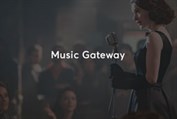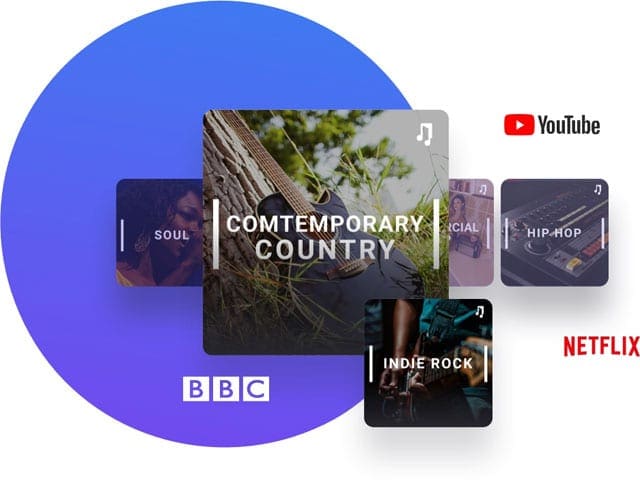What A Music Publisher Does & Setting up your own Publishing Company
Music publishers work in probably one of the most complicated areas of the music industry, but also one of the most lucrative. As an independent artist, it is vital to understand music publishing and get it right. You could be missing out on revenue that is owed to you whenever your music is played or streamed, and on opportunities to expand the reach of your music through sync licensing and sampling.
We’re going to break down everything that relates to music publishing so that you don’t miss a single trick.
Music Publisher and your rights
The nature of music publishing is making money from the play and production of your music. Every time your music is printed onto a CD, streamed on Spotify or played on the radio, you should be paid royalties. Music publishers will help you with the process of earning royalties through the exploitation of your musical copyright.
It’s paramount when it comes to working with a music publisher to first understand your rights as a songwriter. We’re going to start with the conception of a new track, as this is where certain copyrights are determined.
If you, or your band, write a song or melody, then that composition belongs to you in the form of copyright. If you’re an individual working alone, then it’s just you. If you’re in a band, then it’s up to you as a group to determine who owns what. You can split the ownership any way you like, most split it evenly, but this discussion is something you can negotiate between you. This is the composition right and is only one half of it.
Once your track has been produced, then there exists a master right. If you’re an independent artist, chances are you produced it yourself. In this case, you own 100% of the rights to your music. If someone else produced the sound recording, if you’re signed to a label then this is the more likely, then whoever produced it owns the master rights.
Now when it comes to copyright in publishing, copyright laws only recognise the lyrics and melody as “the song”. This means that when your music is published, only the owners of the composition rights are owed royalties. If you’re a master rights holder, your revenue comes through record sales, online or physical.
All understood? Good. Next is royalties, the money you are owed from the circulation of your music. With publishing, there are a number of ways in which you can monetise your music:
Performance royalties: these are owed to each copyright holder whenever their music is played live, via terrestrial and satellite radio, streaming sites, internet radio, plays on TV shows, film, commercials, video games and in stores, bars, restaurants and even more.
Royalties are owed to you by each of the music services, networks, venues and sites that allow for the public broadcasting, or ‘performing’, of your music. Monies are collected by performance rights organizations.
Mechanical royalties: these are generated through global streaming activities, downloads and the reproduction of your song on physical media such as CDs, vinyl and cassettes.
Mechanical royalties for streams and downloads are separate from performance royalties and the master recording purchase. They are more like the equivalent of printing your song onto a CD. Spotify owes you both performance and mechanical royalties when your track is streamed, Amazon and iTunes include the mechanical royalty in the net pay of the sale of your MP3 file.
Sync licensing: is a licensing agreement settled upon by a media company, most likely through a music supervisor, with an artist or their representative, allowing for a specified track to be synced to a piece of visual media. These can be great exposure for emerging artists and can generate a lot of revenue. Usually, there is a one-off fee for the sync, as well as sync royalties for the use of the song.
Sampling: if you’re a composer, this may be more applicable to you. If you create a piece of music, registering it with a rights organisation, and someone else wants to use that piece of music, they must obtain a clearance from you in order to sample it in their work.
Sampling can be lucrative as usually the artist or music publisher may ask for a clearance fee, as well as a percentage of the track revenue. These fees are decided on a case by case basis and negotiated by the parties involved.
Print rights: These are the rights to be paid to the copyright holder for the reproduction of their music in the form of sheet music. Royalties are paid in the same way as mechanical and performance royalties.
These are all the rights you need to be aware of when publishing your music yourself, or by relinquishing a percentage of your rights to a music publisher in payment for their services.
What do Music Publishers do and what can they do for artists/songwriters?
So we’ve discussed the various rights involved in music publishing, now to understand the role of publishers and if you need one. Put simply, they publish and promote your music in order to increase your royalty revenue, then collect them and pay you. In return, the publisher is assigned or licensed a proportion of the rights by the songwriter as payment. This means both the songwriter and publisher can earn revenue from the royalties.
Publishing and royalty collection can be one of the hardest elements of making music as royalty collection can become a full-time job, taking away precious hours that could be spent on the reason we’re all here, the music.
We’ve just discussed all the various royalties and the places that your music could generate them, now think about your time and resources, can you spare them? Or would it more worthwhile employing someone else to do so, who will probably collect more than you could alone?
Music publishers work with Performing Rights Organisations, (PROs), royalty collection agencies and a whole host of other global players in order to collect both your mechanical and performance royalties. They are usually well-connected and can open sync licensing opportunities through a network of music supervisors and contacts across the entertainment industry. Music publishers want to seek out opportunities for your music as a higher royalty revenue for you means a higher royalty revenue for them.
If your music is being listened to by a global audience, it can be difficult as an independent artist to collect all your royalties from the various rights organisations across the world. Music publishers often have ties publishers in other territories who assist them in the collection of global royalties. These are known as sub-publishers. If you sign to a large publisher, they may already have offices in other territories and therefore have no need for sub-publishers.
Depending on the publisher and the nature of the publishing deal, publishers can also provide advances to songwriters to support them in the creation of their music. Similarly to how a record label might give an artist an advance, this debt must be paid back in full to the publisher through the collection of royalties. Once the advance has been paid back, then the artist/songwriter will receive their due royalty payments.
Sync licensing is a great way to earn revenue and increase the reach of your music, this is where a music publisher can really make a difference. Music publishers can be invaluable middlemen for artists and music supervisors who source the music for films, TV, games, commercials and other methods of visual media.
It benefits music supervisors and publishers alike to keep a close network of trusted contacts. Supervisors will often turn to their network of publishers first when they have a new project and publishers can submit music by their clients that they feel would suit the brief. Independent or emerging artists can be appealing for supervisors to source music from as they don’t have to pay anywhere near as much to the artists in sync fees, as they would to a major artist. Supervisors have to work within a budget too.
A good publisher should have an array of contacts throughout the entertainment industry; directors, producers, supervisors, advertising agencies and production companies. If you’re particularly interested in sync licensing, ask any potential publishers about their contacts and their past successes in sync. If you’re a songwriter interested in sync, you should also consider looking into production libraries to submit your music to.
Publishers should also seek to advance the careers of their clients by introducing them to influential players within the music industry. By introducing their artists to A&R teams, producers and co-writers, publishers can encourage growth for their artists at the top of the music industry ladder. Should an artist attract the ears of influential industry players and go on to rise in their career, publishers can ride off the back of this success.
If you’re a small artist and you co-own the publishing rights to your music as well as your publisher, even once your contract is over, they still own those rights. If you then make it into the charts and people discover your old music, your old publisher will still receive royalties for those tracks, just as you will. For songwriters, co-writing can be a great way to advance your career through cross musical promotion, resulting in more royalties for you, and again, your publisher.
In a nutshell, music publishers can free you of a lot of paperwork and royalty hunting. They are experts in fighting for every royalty you deserve and opening up new opportunities for artists. If you’re a songwriter, not a performer, music publishers can pitch your tracks to big labels and artists they’re connected to. They can get the song that you wrote in your home studio, into the charts and sung by a top-selling recording artist.
The wrong music publishing deals
As with any industry, there can be a few cowboys out there who promise big results, but only have their own self-interests at heart. This is unfortunately also applicable to the publishing sector.
When considering a publishing deal, it’s vital that you read the terms very carefully and clearly understand how your royalties will be split. It’s worthwhile getting a lawyer to read through the contract and ensure you’re not going to be swindled of your rights and your royalties.
While advances sound inviting, they are more or less a loan. Even once you’ve paid this off, you might still see a small return in the form of royalties depending on the copyright agreement you signed your name to in the contract, your music publisher may own most of the publishing rights if not all of them. Copyrights last for years beyond your death and so that property will remain theirs long after your contract is over. Beware of ‘buyout’ and full music publishing agreements that sign all your rights away.
It’s essential that you choose the right publisher for you, and to consider how much time and attention they can pay to your music. If you sign to a major music publishers, think of how many other artists they have on their roster and what fraction of their time will they be able to spend on your music. Will they really be able to promote your music better than you when they have only a limited amount of time to spend on your music?
Types of publishing deals
Administration agreements are a popular choice for DIY artists these days, as they do not involve any signing away of your copyrights or publishing rights. These agreements simply employ a third party to administer the rights to your music and protect them; they handle the paperwork, licensing and monetise your music.
Administrators will register your tracks with PROs like the Performing Rights Society, (PRS), in the UK and Broadcast Music Inc, (BMI), in the US. You can register with PROs yourself but it won’t cover all the royalties you’re owed. These organisations collect your performance royalties in their country, but not your mechanical royalties. You’ll also need to register with the Mechanical-Copyright Protection Society (UK) and the Harry Fox Agency (US) to obtain mechanical royalties.
A music publisher will likely already have a registration with PROs all over the world and will handle the registration of your music for you. The organisations mentioned above only operate in two nations across the world. There are many more in which you could be generating royalty revenue and understanding the registration rights for each of these countries is not easy. This is when a publishers’ sub-publishing network can really come in handy.
Administrators don’t own the copyright to your music but do ask for a percentage of the earnings as a payment for their services. This fee is usually between 5-20% of your earnings but will vary dependent on administrator and contract. Agreements like these can be long term contracts, annual, or limited to one song or album. All of these considerations are up for negotiation at the time of drawing up a contract.
While these deals seem more appealing in terms of royalty and copyright retention, it is purely administrative. One of the benefits of employing a music publisher is the promotional opportunities they can generate for you. With a publishing deal like this, promoting your music would remain your responsibility.
Sub-Publishing agreements or co-publishing agreements are fairly commonplace with songwriters, as it means the publisher is not the sole owner of the copyright, but that they share it with the songwriter. Typically the publisher will own the administrative rights and handle the legal work involved, but the songwriter does not have to sign away the whole of their publishing rights. Normally it’s a 50/50 split.
Co-publishing deals are usually long term, yearly or longer still, and there is likely to be an advance. The songwriter would then be required to produce a certain number of radio-friendly tracks throughout the term. These may not be quite what you’d envisage for your music artistically, but instead, the kind of tracks your publisher thinks would sell. To receive a deal like this with a hearty advance, you’ll need to have made a name for yourself already within the music industry. Again these details will be negotiated when drawing up a contract.
Full publishing agreements are fast becoming a thing of the past as songwriters and artists have more knowledge of the industry and the resources available to make it on their own. These essentially mean a publisher would purchase the full publishing rights to a track for a lump sum paid to the artist/songwriter. Therefore the composer would see no royalty revenue as the publisher would own the full copyright.
Don’t be blinded by the money a publisher my wave in front of your face for your music, think about the longevity and potential success of the track. Does it have the potential to bring in more throughout its lifetime in royalties than they are offering you now? If you retain the rights to that music, you can decide how it is used. Don’t sign away your artistic baby to someone else who would use it for purposes you’d deem unworthy.
As we’ve touched on above, publishing agreements can last for as little as one song, or for the length of its copyright history, (70 years after the death of the last author in the UK). Every time you sign a publishing agreement, consider the length of time you are prepared to commit to, and what that will mean for your music should your career take off.
What to look for in a music publisher?
When you’re signing a publishing deal, there are certain things you should look out for. The first is, of course, the share of the copyrights and therefore your royalty income.
Depending on your skills as a music creator and what you want to see in return, like royalties, syncs, connections, career progression, you should only sign a deal with a publisher if you feel confident they can deliver. Think about when is the right time in your career to employ a publisher and what kind of deal would benefit you most.
Consider who else the publishing company represents, are their other artists/songwriters in a similar genre to you? If you’re interested in sync licensing for TV and film, then this could have an impact on which music supervisors approach them for potential syncs. Aim for a publisher who has desirable connections for your goals.
How many other artists/songwriters does this publisher represent and how much time can they allocate to your music? When negotiating the percentages of royalties with a potential publisher, ask how much time, attention and resources they will be able to spend on your music. Make sure they’re doing enough work to earn their share of your royalties.
Contacts and networking opportunities should also be on your checklist for a music publisher. Are they sociable and able to connect you to someone who could do wonders for your career? Publishers act as the representation for your music, it’s their job to protect and promote it. They should be working hard to provide exposure, showcasing opportunities and introductions with influential players in the industry.
Songwriters rely on their publishers’ connections to major artists, labels and producers in order to earn revenue from their songs. If your publisher can’t open doors to the industry for you, you have a slim chance of paying back your advance. Does this publisher have past success in securing cuts with chart-topping artists?
Accounts and payment of royalties
It’s your publisher’s job, as part of the administrative rights, to pay you your portion of the collected royalties. All the revenue your music has earned and has been paid to them through the rights organisations across the world they registered your music with, should be paid to you according to the terms set out in your contract.
Payments made to publishers by PROs can vary with each organisation or agency. The PRS, for example, pays artists/publishers quarterly, whereas the MCPS pays royalties monthly. Your publisher will likely have a standard payment schedule to their artists, dependent upon when they receive payments from the PROs.
How to start a music publishing company
This is a lot of information to take in, and even more to consider. If after reading this you’d rather not relinquish any of your publishing rights to anyone else, there is another option; you could start your own publishing company.
By publishing your music through your own publishing company, you keep 100% of the publishing rights owed to you by copyright, through the purchase and use of your music. Do not take this on lightly, you will be responsible for the contractual payment of your rights holders, as well as protecting their works against breaches of copyright. An early music publisher’s salary can vary based on the success of the music in their catalogue, and, as we’ve repeatedly said, on their hard work.
As with starting up any business, there are certain processes and business decisions to undertake:
Starting up – first things first you’ll need a name, a business bank account and to register your business with HMRC.
Setting up an office – this doesn’t have to be literally, but there are still costs involved. You’ll need some accounting software, maybe a website, cloud storage, music management, record keeping. Are you going to employ anyone to help you out?
Investment – how are you going to fund this company? There will outgoings before there are incomings so you’ll need some money behind you, especially if you want to entice songwriters with advances. Are you going to take out a loan? It could be a good few years before you see any return of investment on this venture.
Legalities – there’s a lot of legal work involved in music publishing so unless you’re legally minded or trained, you’re best off entrusting the help of a lawyer to assist you with contract write-ups and copyright breaches. This could be one of the most costly, but necessary, elements of your business.
Musicians – do you have anyone in mind for your catalogue? You will need to scout musicians to publish their music and act as their representation. The relationship you have with your artists must be honest and transparent, you need to know all of the people involved in the composition and production of their music in order to maintain accurate metadata and copyrights.
Registration – You’ll need to register all the music in your catalogue with a PRO. As a writer, you can only affiliate yourself with one PRO, but as a publisher, you can affiliate with more.
If you register with a PRO as a publisher you’ll face a higher membership fee, and if you register with many you’ll have to consider the cost of this. You could team up with other publishers in other territories, (sub-publishing), to take advantage of their knowledge, offering the same service from you in return. This would require an agreement between you and your sub-publishing counterpart, over the royalty splits between you for each of your artists.
Connections – You’ll need to start establishing connections within the music and entertainment industries. Your artists/songwriters will expect you to open doors for them with producers, A&R people, label reps, music supervisors and other artists/songwriters. You’ll need to start attending events, networking effectively and maintaining relationships with other professionals in the industry.
This is one area you really need to get right as a DIY artist or songwriter. Think carefully about your music and whether you require a publisher or not. There are ways to manage your music publishing independently but you should consider what else a publisher can do for your career.
FAQ Section
What a music publisher does?
In the music industry, a music publisher (or publishing company, also known as a rights holder) is responsible for ensuring that their songwriters and composers that are signed to them, receive royalty payments for the public broadcast of their songs and when their songs and compositions are used commercially.
This revenue includes synchronisation (sync for short) to media which will generate a sync fee for the writers and the master rights holder.
Publishers also seek to place songs with artists, which is known in the business as getting a cut. As many songwriters don’t perform their own songs or are front-facing artists and therefore rely on their network and publisher to place these songs. Finally, publishers will also connect songwriters with other songwriters and artists for co-writing sessions and sometimes, songwriting camps to stimulate new songs.
What percentage do music publishers take?
The publishing agreement terms will depend on the leverage the songwriter or artist may have in the marketplace, for example, if you have just come out of a deal and secured a big hit record, clearly this puts you in a very strong negotiating position as you have a track record of the monies you generate from public broadcast revenue and proof that you are still writing big records.
However, on the other hand, if you are a young songwriter with potential, but very little in the way of traction in the market or songs placed with good artists, then the publisher will more likely have the strongest position.
It’s all very give and take and there’s no one publisher that ticks everyone’s boxes, so do your homework and at the point you may be offered a publishing deal, get a lawyer. The terms for a typical publishing agreement would be a 70/30 split of net revenue in favour of the writer, but would not normally go below 50% or higher than 80%.
Publishing splits for publishing admin services are different, as these companies don’t do what a traditional music publisher does (or should do) and therefore take less of a %. Sync revenue splits can be slightly lower splits than the broadcast % splits.
Do you need a music publisher?
Actually, no you don’t need a music publisher, but being with the right one can make a huge difference to your career and that all depends on how pro-active that music publisher is with your career development.
Getting your royalties collected these days isn’t an issue, and the right publisher will help place your songs with artists, get your music licensed for sync (TV, Film, Ads & Games) and co-writing with other established artists.
What is a publishing deal music?
A music publishing contract is a legal contract between a music publisher and a songwriter or author or composer of an original song. You can get a song signed as a single song assignment or get signed as a writer for all your songs to date and all the songs you writer during the term of the agreement. This later basis would also normally include picking up the publishing of your previously written songs.
The publisher will then handle the collection of your song royalties and account to you normally on a quarterly or bi-annual basis.
Q: How do I set up a music publishing company?
- Create a brand or company identity (if you don’t already have one)
- Register your music publishing company with a PRO (performing rights organisation) such as ASCAP, BMI or PRS (UK) and note there is a fee to register, at PRS it’s £400
- Decide if you wish for the PRO to collect all your royalties worldwide, or you enter into sub-publishing agreements with other publishers by territory.
- Register your catalogue of songs at the PRO
- Then the real hard work starts, securing sync licensing placements, song cuts and songs exploited in the marketplace
Q: What does BMI do for songwriters?
In the USA there are three PROs (Performing Rights Organisations) being ASCAP, BMI, and SESAC. Canada has SOCAN, GEMA (Germany), PRS (UK) and it’s these organisations that collect performance royalties on behalf of songwriters and publishers – that’s it, their sole purpose is to collect performance royalties on your behalf.
Q: How do music royalty payments work?
Public performance of songs (radio, TV, live performance) will generate performance royalties for the songwriters. These royalties are collected by the PROs (ASCAP, BMI, SESAC, PRS).
In the USA, terrestrial broadcasters (AM and FM stations) do not pay performers or sound recording copyright owners; they only pay the songwriters, whereas in the UK and Europe both copyright owners earn revenue and account back to the PROs.
Q: How much does it cost to start a music publishing company?
BMI charges $150 for a company to join and zero for songwriters. In the UK it costs £100 to join as a songwriter and £400 to join as a music publisher.
Q: Is ASCAP a music publisher?
ASCAP, BMI and SESAC are all not music publishers. It’s important to understand that ASCAP, BMI, SESAC, SOCAN (Canada) and other performing rights organisations collect performance royalties on behalf of songwriters and music publishers and therefore are not your publisher, and do not act as your publisher.





























